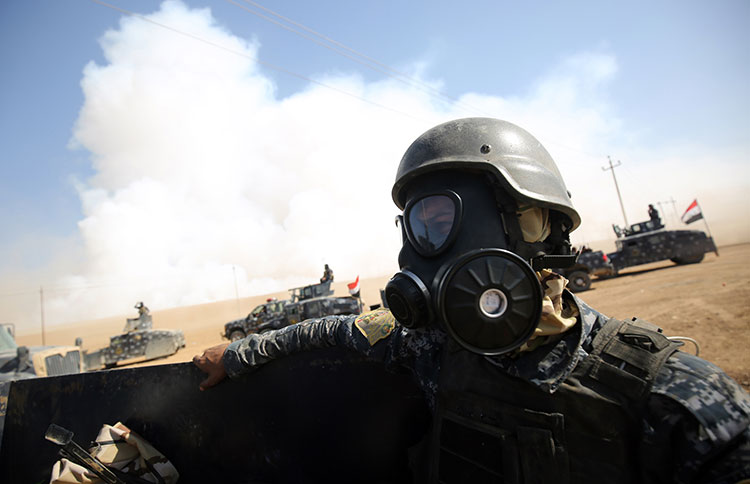Satellite imagery of the current operations by Iraqi forces to retake Mosul reveal how ISIS can inflict damage even when the militant group is on the run.
Iraqi forces began the operation to retake Mosul on Oct. 16, with forces advancing from the south along the Tigris River and from the east with the goal of retaking the outskirts of the city before beginning a block-by-block clearing of the largest city still held by ISIS in Iraq.
Imagery from the past week reveals front-line fires near the city as well as two large industrial fires that were set off by ISIS as the militants retreated from those positions. The black smoke is from the Qayyarah oil field, which burned for over four months, and the white smoke that began on Oct. 20 is from a sulphur plant in Mishraq that was retaken by Iraqi forces within days of the start of the operation.
While Iraqi forces continue to push out the ISIS, the militants are leaving behind destroyed infrastructure and dangerous environmental conditions.
On June 18, Iraqi security forces began an offensive to retake Qayyarah, which ISIS seized in 2014. The militants used an oil field complex and refinery 40 miles south of Mosul to finance its operations. Based on satellite imagery, ISIS was apparently aware an attack was imminent because smoke began emanating from a small number of wells on June 16.
On July 9, Iraqi forces secured a large air base nine miles west of Qayyarah. By then, more than 10 well heads were ablaze. On Aug. 25, Iraqi forces declared that Qayyarah had been retaken from ISIS. By the end of the summer, more than 15 wells were on fire. In September, close to 600 U.S. troops arrived at the air base to assist Iraqi forces with the planned offensive. While ISIS is no longer in control of Qayyarah, it still occasionally attacks the facility.
The refinery served as the largest employer for Qayyarah, which had a population of 30,000 before the militants took over. Once able to process 10,000 barrels a day (bpd), the refinery produced just 2,000 bpd under ISIS. It has now been rendered useless by ISIS sabotage. The town’s population dwindled to roughly 13,000 during ISIS occupation.
The Washington Post
